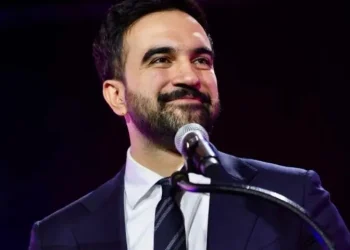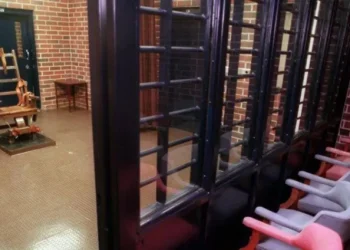Politicians and academics have criticised a decision to withdraw US visas from foreign students whose courses move fully online.
US Immigration and Customs Enforcement (ICE) said people could face deportation unless they changed to an institution with in-person tuition.
A number of US universities are considering online teaching in the new academic year due to coronavirus.
It is not clear how many people will be affected.
The Student and Exchange Visitor Programme, which is operated by ICE, had introduced a temporary exemption to allow students whose courses had moved online for the spring and summer semesters to remain in the US.
However, the exemption will not be extended into the new academic year. The decision affects students who are in the US on F-1 and M-1 visas, according to the ICE statement.
The news came on the same day that Harvard announced all course instruction would be delivered online in the new academic year, including for the limited number of students allowed to live on campus.
According to the Chronicle of Higher Education, 9% of US universities are planning to teach all their classes online in the autumn, although this could change in the coming months.
The president of Harvard University, Larry Bacow, said in a statement quoted by US media: “We are deeply concerned that the guidance issued today by US Immigration and Customs Enforcement imposes a blunt, one-size-fits-all approach to a complex problem, giving international students, particularly those in online programmes, few options beyond leaving the country or transferring schools.”
He added that the decision “undermines the thoughtful approach taken on behalf of students by so many institutions, including Harvard, to plan for continuing academic programmes while balancing the health and safety challenges of the global pandemic”.
“Kicking international students out of the US during a global pandemic because their colleges are moving classes online for physical distancing hurts students,” said Democratic Senator Elizabeth Warren. “It’s senseless, cruel, and xenophobic.”
Her comments were echoed by the former US ambassador to the UN, Samantha Power, who said the decision made “no sense and [is] unworkable for most college students”.
Journalist Elizabeth Spiers, who teaches at New York University, said many of her students were reliant on visas and would be unable to follow an online programme due to the time difference between the US and their home countries and other considerations.
Noah Furlonge-Walker, 20, from Trinidad, was looking forward to starting the second year of his degree at Harvard University when he heard of the decision.
The 20-year-old moved back to Trinidad in March when the Ivy League college decided that classes would move online for the remainder of the academic year.
Mr Furlonge-Walker – who is on an F-1 visa – told the BBC: “I can’t see any sense or reasoning behind this decision.
“At a time like this, when everyone is trying to get back on their feet and get back to normal, why they would do something that jeopardises everyone?”
source: BBC



















































